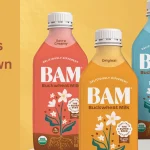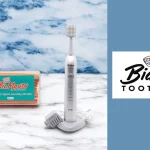
If you’re a start-up, entrepreneur or a small business, SEO is on your radar, but you probably don’t have time to track, manage and maintain it – that’s where UpCity comes in. There are a ton of tools out there, but many of them could end up getting you penalized with Google, are outdated, or give flat out bad advice. If you are interested in SEO and need help, here is a guide to help you through the basics and tool to help you save time and track results.
The Basics
- Keyword research & modifiers
- Title tags
- Content
- Images
- Internal links
- Backlinks
- What to do
- What not to do
- Track and repeat.
Keyword research & modifiers
This is one of the most important things. If you do ppc, look at the terms that convert the most for you. Focus on trying to rank for these terms and their long tail versions. A long tail keyword phrase is the base keyword with modifiers added on.
Once you have your keywords selected, assign them to different pages. The trick here is making sure that each page focuses on one base keyword with a few modifiers. If you have more than one page dedicated to blue widgets, you may confuse the search engines on which page to rank.
Title Tags
Now that you have your keywords and pages, it’s time to name the page and give it a title. Your title tag should include the root keyword phrase and be unique so that it stands out in the search engines.
If you type in the base keyword and all results come back “Buy Blue Widgets Here”, make yours unique by trying “100’s of Blue Widgets on Sale” or “Blue Widgets on Sale – Huge Variety”. Having a call to action or something that encourages a click through like an incentive can help people to skip over the results above you and click to your site instead.
You can also test your title tags for click through rates by using them in your PPC ads.
Content
You now know what keywords you want to rank, what type of title tag will drive traffic and have a good idea for the conversion rates. Now it’s time to build the content in your site. Here are a few things to make sure you include or try to use.
H tags – your H tags are your headers. Use them to define what the copy is about and include the main keyword phrase in your H1 tag.
Keyword density – Your keyword density is how many times your main keyword phrase is mentioned per 100 words. If it is mentioned 1 time in 100, you have a 1% density. A 1.5 to 2.5 density is pretty good.
Word count – Although you don’t want to write to fill a minimum quota, having 350 to 500 words at a minimum can help to give you an advantage over the sites ranking that lack copy.
Content – Include something useful or interesting that can help an end user. Having this information can give bloggers and journalists a reason to source your page and give you a back link.
User friendly – Replace as many I, Me, We and Our with You, Your, You’ll and You’re. Making the content about the end user can help to increase conversions.
Images
 Images are important for your pages. They help to define what the content and topic is as well as make your page more appealing. Remember to include your alt tag as well as a proper image name and title. You’ll also want to make sure your images are hosted on your site domain so that if someone takes/uses it, you can get the backlink.
Images are important for your pages. They help to define what the content and topic is as well as make your page more appealing. Remember to include your alt tag as well as a proper image name and title. You’ll also want to make sure your images are hosted on your site domain so that if someone takes/uses it, you can get the backlink.
Internal Links
Internal links are when you link from one page on your site to another off of a keyword phrase. This is a good SEO tool because it helps to let the search engines know which pages you want to rank for what keywords. It’s important to remember to only use an internal link off of the keywords you want a page to rank for to only link to that page.
Back Links
Backlinks are when other sites link to your site. They are one of the most important things with getting your site to rank. Here are a few basics you need to know about them.
- What to do
- Get links from high quality content sites, but within their content and as a natural tie in.
- Try to have them point to your site off of your name and brand for 70 – 80% and make keyword rich ones that point to the pages you want to rank for specific keywords be the remainder.
- Talk to bloggers, contributors, journalists and niche publications that mention you and see if they’ll turn the mention into a link.
- What not to do
- Do not leave blog comments, forum comments or create a million social media profiles with links.
- Do you submit to article sites, directories or sub-domains like keyword.wordpress.com, keyword.blogspot.com, etc…
- Do not buy links, use automated link builders, link exchanges or get links from sites that allow sponsorships, reviews or giveaways. These can all get you penalized.
Monitor with UpCity
Now that you have the basics, you need a way to speed up, manage and track your progress. That’s why there is UpCity.
UpCity is an SEO and SMB management tool that provides you with knowledge of what is good, what is bad and offers guidance to help you through confusing concepts. They offer quick ways to protect your brands, ways to track whose linking to you, clean and easy to understand reports and a sales tracking tool to keep a record of when you did what and where it is.
In addition to those, UpCity also offers you a way to track your reputation on review sites, social media engagement and a connection to Google Analytics so you can monitor what is most important with clean and clear definitions of what everything is.
UpCity will take the guess work out of a lot of these concepts, provide you with easy to understand reports and also help you to repeat what works and find what could have caused your rankings to drop.
We highly recommend UpCity and you can try it free by clicking this link. The other option is to have them give you a free SEO scan/report card by clicking here.
This guest post was written by Adam Riemer of Adam Riemer Marketing. Adam has been doing Marketing and Online Marketing for over a decade and he’s available to companies ranging from one man shops to the Fortune 500 level as a consultant on many internet marketing related issues. You can reach out to Adam HERE.

























